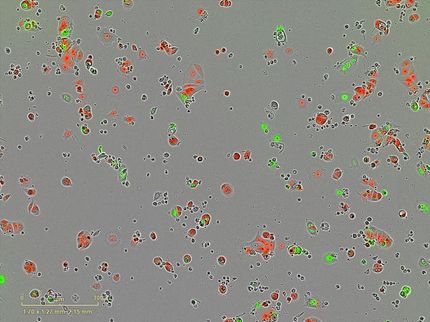Protein from pregnancy hormone may prevent breast cancer
Researchers have found that hormones produced during pregnancy induce a protein that directly inhibits the growth of breast cancer. This protein, alpha-fetoprotein (AFP), may serve as a viable, well-tolerated agent for the treatment and prevention of breast cancer, according to findings published in Cancer Prevention Research.
"Hormones in pregnancy, such as estrogen, all induce AFP, which directly inhibits the growth of breast cancer," said lead researcher Herbert Jacobson, Ph.D., who is a basic breast cancer researcher in the Center for Immunology and Microbial Diseases and in the Department of Obstetrics, Gynecology and Reproductive Sciences at Albany Medical College, N.Y.
"The body has a natural defense system against breast cancer," he added. "AFP needs to be safely harnessed and developed into a drug that can be used to protect women from breast cancer."
Recent studies have shown that hormones released during pregnancy, such as estrogen, progesterone and human chorionic gonadotropin, reduce a women's risk for breast cancer. AFP is a protein normally produced by the liver and yolk sac of a fetus. Jacobson and colleagues sought to determine whether administering pregnancy hormones to carcinogen-exposed rats led them to produce AFP, which in turn produces the protective effect of pregnancy in the absence of pregnancy.
Results from this study showed that treatment with estrogen plus progesterone, estrogen alone or human chorionic gonadotropin reduced the incidence of mammary cancers in rats. Furthermore, the researchers noted that each of these treatments elevated the serum level of AFP and that AFP directly inhibited the growth of breast cancer cells growing in culture, suggesting that these hormones of pregnancy are preventing breast cancer through their induction of AFP.
Cancer Prevention Research Editorial Board Member Powel Brown, M.D., Ph.D., said while these preclinical findings are important and suggest a role of AFP in breast cancer prevention, they are not yet ready to be used in the clinic.
Other news from the department science

Get the life science industry in your inbox
By submitting this form you agree that LUMITOS AG will send you the newsletter(s) selected above by email. Your data will not be passed on to third parties. Your data will be stored and processed in accordance with our data protection regulations. LUMITOS may contact you by email for the purpose of advertising or market and opinion surveys. You can revoke your consent at any time without giving reasons to LUMITOS AG, Ernst-Augustin-Str. 2, 12489 Berlin, Germany or by e-mail at revoke@lumitos.com with effect for the future. In addition, each email contains a link to unsubscribe from the corresponding newsletter.


















































